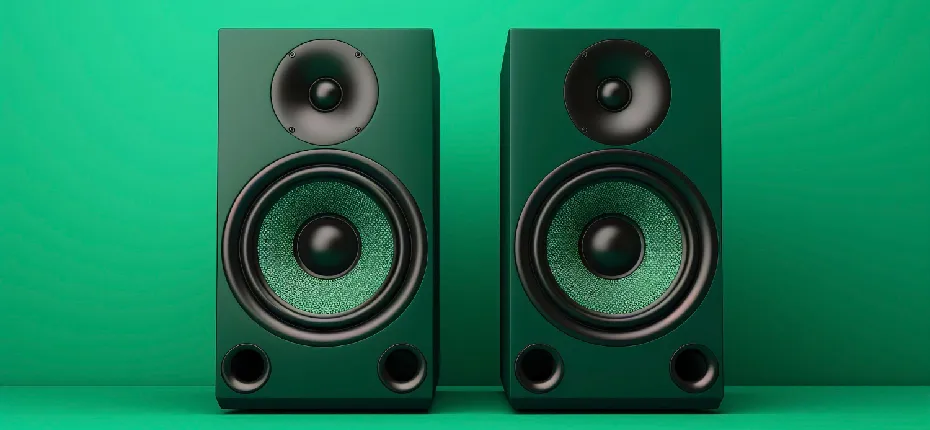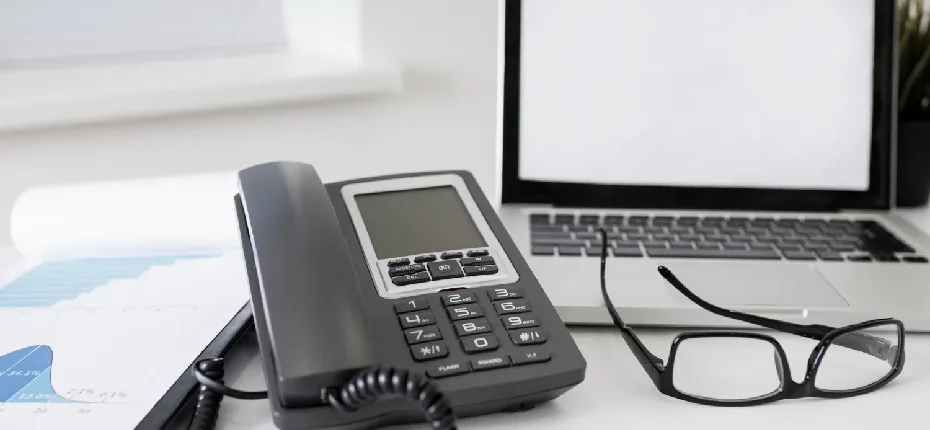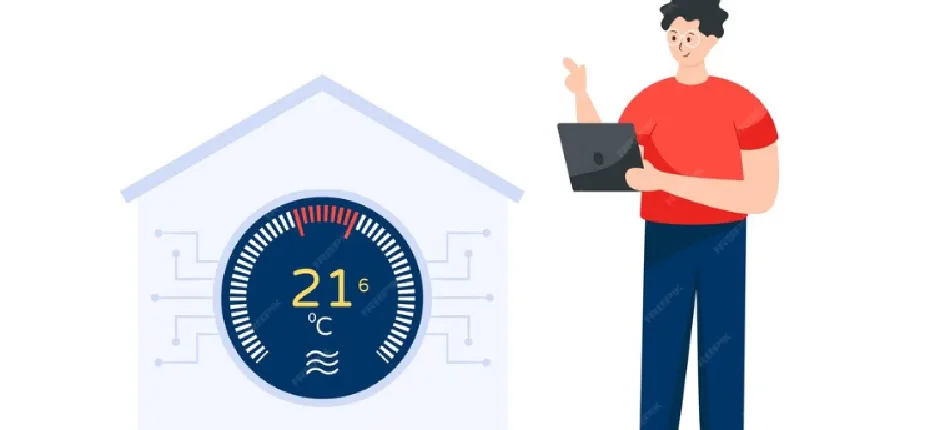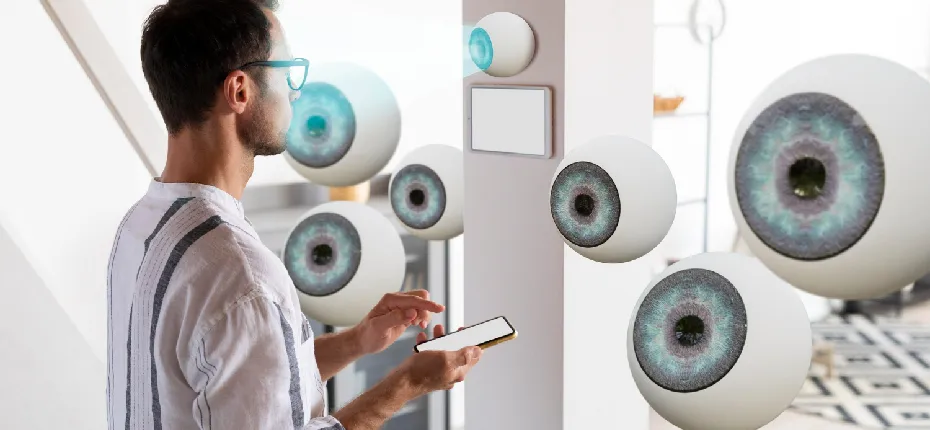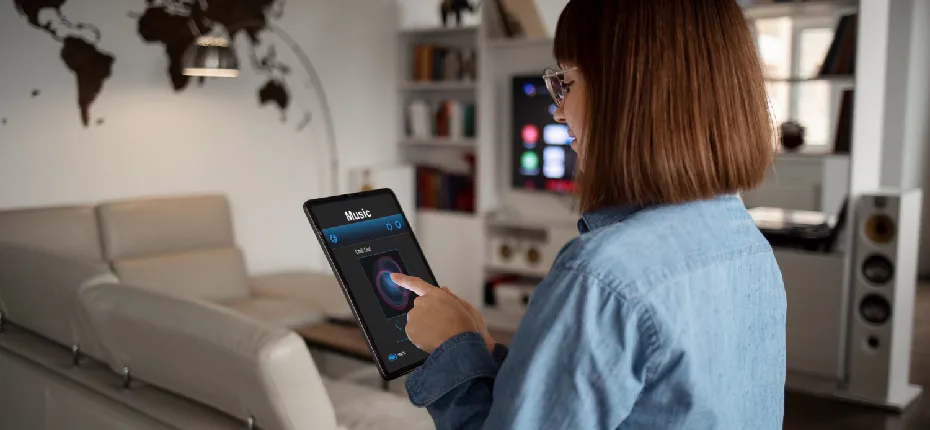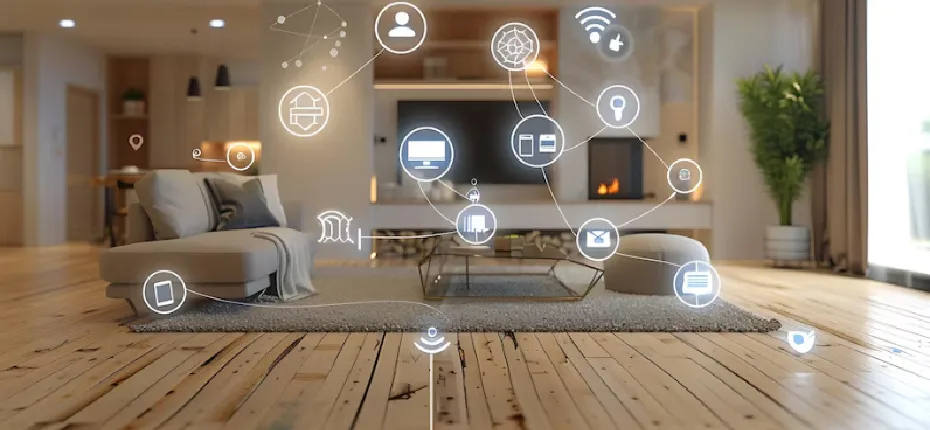Energy-Saving Tips: Optimizing Your AC System Through Thermostat Settings in Dubai
Using AC takes lots of electricity in Dubai’s heat. But you can optimize your air conditioner and cut energy bills by adjusting the thermostat wisely. Setting good temperature ranges, programming schedules, and using smart features can improve efficiency.
This blog gives tips for ideal cooling settings of ac thermostat installation in Dubai homes, adapting to seasons, and reducing usage when away. We’ll also cover maintenance, natural cooling, educating others, smart home integration, monitoring, and incentives.
Follow these thermostat recommendations to keep your home comfortably cool while maximizing efficiency. With some simple usage changes, you can relax in the AC without sending your electricity bill sky high. Read on to start optimizing now!
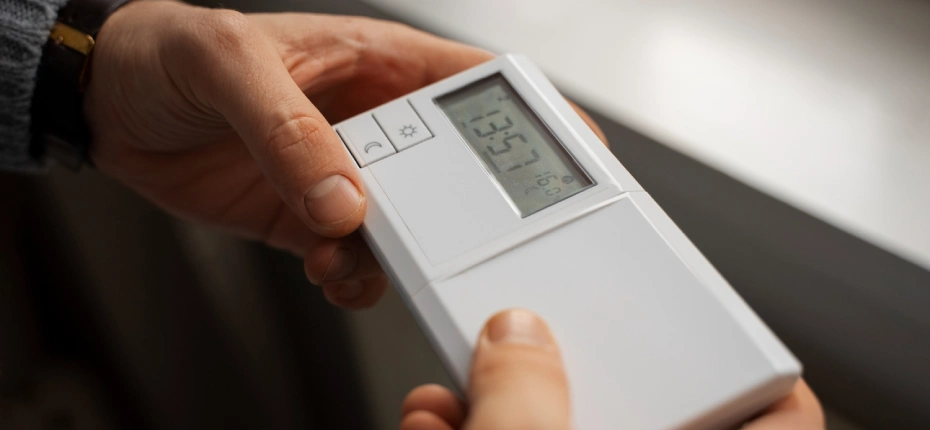
The role of thermostat settings in optimizing AC systems
The thermostat is the device that controls when your AC turns on and off. It does this by monitoring the temperature of the room. You can set a desired temperature on the thermostat.
When the room gets hotter than the temperature you’ve set, the thermostat signals the AC to turn on and start cooling the room. When the room reaches the desired temperature you’ve set, the thermostat will signal the AC to turn back off.
So setting an appropriate temperature on your thermostat is important to keep your room comfortable while also optimizing your AC system. Setting the temperature too low will make your AC work harder and run longer than necessary. This uses more electricity. Setting the temperature higher puts less strain on your system and uses less power.
Smart thermostat installation in dubai will provide the right balance for your thermostat setting keeps the room at a comfortable temp, while making sure your AC isn’t running constantly or working too hard. This saves energy and money while still providing cooling when you need it. Adjusting the thermostat a few degrees at peak times can also help take pressure off the electrical grid.
Ideal Temperature Settings
It’s important to set your thermostat at a good temperature. This keeps your room comfortable without wasting energy.
Experts say the best temperature range is between 72°F – 78°F when using your air conditioner. Setting it lower than 72°F makes the system work too hard. Setting it higher than 78°F may not keep the room cool enough.
Within that comfortable range, a good general thermostat setting is 75°F. At that mid-point temperature, most people feel nice and cool without constantly having the machine run.
Dubai experiences temperature fluctuations throughout the day. The air conditioner thermostat installation services in dubai will provide the options where you can also adjust the temperature a degree or two based on the time of day:
- Daytime: A slightly lower temperature like 74°F feels nice during hot afternoons.
- Overnight: Bumping up the thermostat to 77°F at bedtime still feels comfortable for sleeping and saves more electricity when air conditioning isn’t as necessary.
- Away: When away at work or on vacation, don’t waste energy cooling an empty house. Set the thermostat higher to save money and energy.
Choosing the right temperature settings keeps your home cool while being energy smart! Let smart thermostat installation in Dubai do its important job, and adjust its setting thoughtfully.
Seasonal Considerations for Thermostat Settings
Adapting thermostat settings for Dubai’s hot seasons:
During the scorching summer months in Dubai, it’s crucial to prioritize energy efficiency without compromising comfort. You can achieve this by setting the thermostat slightly higher when you’re at home and lowering it during peak heat hours, such as midday.
Implementing energy-saving strategies during milder months:
Dubai experiences milder temperatures during the winter months. Take advantage of this by relying less on your AC system. You can adjust your thermostat settings to a more moderate range and even turn it off during cooler nights.
Balancing comfort and energy efficiency year-round:
Achieving the perfect balance between comfort and energy savings requires vigilance year-round. Continuously assess your thermostat settings to adapt to changing weather conditions and ensure you’re not using more energy than necessary.
Nighttime and Absence Settings
Using your air conditioner less while you sleep or when nobody is home saves lots of electricity. Here are some tips:
At Night:
- Set the thermostat higher before bedtime. About 77°F still feels comfortable for sleeping.
- Use a fan to feel cooler without making your AC work hard all night.
When You’re Out:
- Don’t waste money cooling an empty house! Before leaving, turn the thermostat up by several degrees.
- Program smart thermostats to go back to normal right before you return. This way, your home will still be cool when you walk in.
Benefits:
- “Setback temperatures” like these lower electricity bills by reducing unneeded AC use.
- Smart thermostats make it very easy to have different settings for night and day.
Proper Use of Fan Settings
Your air conditioner’s fan plays a key role in circulating cooled indoor air. For maximum efficiency, understand when constant operation is useful versus automatic on/off cycling. On hot days when actively cooling, an “on” fan setting ensures continuous airflow to prevent stuffy hot spots.
However, during mild temperatures or at night, switch to “auto” so the fan only runs when cooling is active, preventing wasted energy from unnecessary operation. Brief manual override provides needed air circulation.
Properly balancing these fan modes maintains comfort through airflow while saving energy from a fan motor running nonstop. Using ceiling fans periodically also encourages air movement without added AC burden.
Regular Maintenance Practices
It’s important to have your AC properly maintained so it lasts longer and uses less electricity.
Professional Check-ups
- Have an AC repairman inspect your system once a year.
- This makes sure everything is working right.
Change Air Filters
- Dirty filters block airflow, making your AC work too hard.
- Replace filters a few times each summer, more often if you have pets or dust.
Do Regular Checks
- Once a month, check the AC yourself for any leaks, damaged pipes, or problems with the thermostat.
- Catching issues early prevents wasted energy and bigger repairs later.
Zoning Strategies
Zoning means dividing your home into different temperature zones. This way, you only cool the rooms you’re using instead of the whole house. This saves electricity while keeping you comfortable.
For example, you can set higher temperatures in empty bedrooms and lower temperatures in the family room where everyone is gathered to watch TV. Smart thermostats do this automatically based on where motion sensors detect people.
Zoning tailors temperatures to how each room is occupied. It keeps commonly used spaces cooler, while letting empty rooms stay warmer. This enhanced comfort room-by-room also leads to an overall reduction in home energy use. Zoning delivers both electric bill savings along with personalized, pleasant temperatures right where and when you need it.
Natural Ventilation and Shade
Using natural airflow can cool rooms without air conditioning. Open windows or vents so outside breezes circulate inside. This fresh airflow feels cooler. It works best at night when desert winds are gentle.
Also block sunlight, the main heat source. Close thick curtains over windows facing sunshine during hot afternoons. Install exterior shading devices like roof overhangs or bamboo screens. Trees and shade structures also work.
Letting in natural breezes, blocking direct sun exposure, and using fans supplements air conditioning. Reduce how long AC runs to conserve electricity. Natural ventilation and shade provide energy-saving complementary cooling to enhance comfort on hot summer days.
Integration with Smart Home Systems
Connecting your air conditioning to smart home devices like Alexa allows easy control and saves energy.
Smart Control:
- Adjust temperatures by phone app or voice anywhere
- See real time data on electricity use to improve efficiency
Automatic Savings:
- Smart home sensors turn the AC higher when you’re away
- Your thermostat can shift settings based on your location and needs
Technology Benefits:
- Smart devices give real-time insights to optimize use
- Automation changes temperatures for you, saving more electricity
Embracing smart home AC control from air conditioner thermostat installation services in Dubai means maximum comfort with minimum effort and costs!
Educating Occupants
Teaching everyone how to save energy with the thermostat makes an eco-friendly home. Have a family chat about making easy changes for our planet!
- Explain why adjusting temperatures sometimes matters for not wasting money and electricity
- Give friendly reminders to turn the thermostat higher when leaving a room
- Suggest reasonable levels that feel comfortable without excessive cooling
- Have occasional talks appreciating efforts and sharing new ideas
- Start workshops in your community to pass the knowledge to more people
Monitoring and Analytics
- Air conditioner thermostat installation services in Dubai will install energy monitoring systems to track your AC system’s energy usage in real-time. These systems provide valuable insights into your energy consumption patterns.
- Analyze energy consumption data to identify trends, peak usage times, and areas where further energy savings can be achieved.
- Use the insights gained from energy monitoring to refine your thermostat settings and reduce energy waste.
Incentives and Rebates
- Dubai offers incentives for people who save energy
- Some companies give cash back for adding things like smart thermostats
- Take advantage of these programs to spend less on electricity
Wrapping Up!
In Dubai’s demanding climate, optimizing your AC system through thermostat settings is essential for both energy savings and comfort. By implementing these energy-saving tips, you can enjoy a cooler home while reducing your environmental impact and energy bills. Start today and make a significant difference in your household’s energy efficiency.
